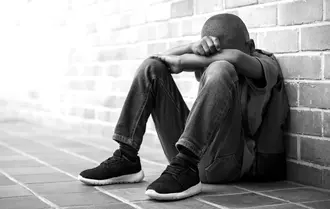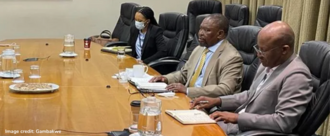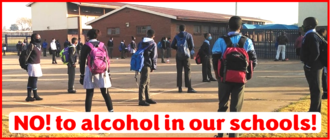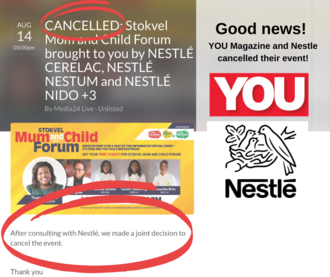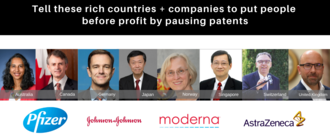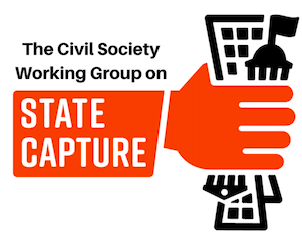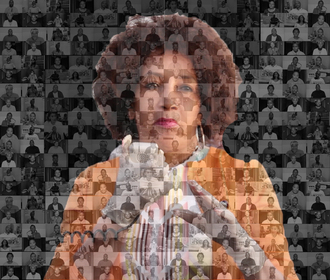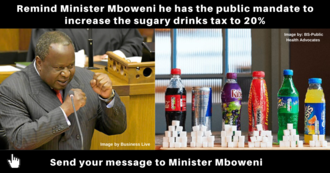- Featured
- Clean air
- Climate justice
- Consumer Rights
- Corporate Accountability
- Data access
- Early Childhood Development
- Economic fairness
- Education
- Electoral fairness
- Environmental justice
- Food justice
- Gender based violence
- Grants/social assistance
- Health
- Housing and infrastructure
- Industry interference
- Land Justice
- LGBTQIA+ rights
- Media/ information access
- Public transport
- Racism
- Reparations
- Safety
- Sanitation
- Service Delivery
- Sexual and Reproductive Rights
- Social justice
- Unemployment
- Womxn's rights/ gender equality
- Workers' rights
- More
-
Demand better mental health services for our childrenChildren in South Africa face extraordinarily high levels of adversity that increase their risk of developing mental health problems: - Two-thirds of children (63%) live below the upper-bound poverty line. - Nearly one in two children (42%) have experienced violence, including physical violence (35%) and sexual abuse (35%). In some communities such as Soweto, 99% of children have either witnessed or experienced violence in their homes, schools and/or communities. It's therefore not surprising that more than 1 in 10 children in South Africa have a diagnosable and treatable mental disorder. This includes neurodevelopmental disorders such as ADHD and autism as well as depression, anxiety, post-traumatic stress disorder, conduct, learning and substance-use disorders. And COVID-19, conflict and climate change are placing increasing pressure on young people's mental health. * WHY SHOULD WE CARE ABOUT CHILDREN'S MENTAL HEALTH? Mental disorders in young people not only cause distress for children and their families. They interfere with children’s ability to function in everyday life. Without adequate support, children may struggle at school with higher rates of absenteeism, grade repetition and dropout, undermining their education and economic prospects. Others may start to self-medicate with substances or resort to self-harm to cope with their symptoms, or they may channel their anger and distress outwards through disruptive, harmful, and, some instances, criminal behaviour. In this way, our failure to support children's mental health ripples out across their lives - and across generations. Fifty per cent of all mental disorders begin before the age of 14 years. So we need to intervene early in childhood and adolescence to break the cycle of violence, poverty and poor mental health. * WHY ARE CHILD AND ADOLESCENT MENTAL HEALTH SERVICES IN CRISIS? There are only 15 child and adolescent psychiatrists working in the public health system. In most communities, mental health services for young people are simply unavailable - leaving 9 in every 10 children with a diagnosable mental disorder unable to access treatment. Few health facilities have dedicated facilities for children and adolescents with acute mental illness. As a result, adolescents are kept in adult wards where they may be exposed to adult psychiatric patients and assessed by staff who lack the appropriate skills and expertise. These problems are rooted in government's failure to allocate adequate resources to mental health services and violate children's rights to mental health care.1,596 of 2,000 SignaturesCreated by Children's Institute- University of Cape Town
-
Treasury did big sugar businesses influence your decision?On the 1st of April, the day the HPL increase was to start, Treasury issued a statement postponing the increase [1]. Treasury did not justify this last-second decision, which has raised concerns about what evidence was used to make this decision. Did Treasury choose to put profits before health by agreeing to the demands of the sugar industry? The sugar industry has a conflict of interest when it comes to the sugary drinks tax. That's why it is important Treasury reassure the public that the sugar industry did not influence their decision. The sugar industry has used its power and resources to attack the sugary drinks tax [2]. HEALA has called on Treasury to provide the research and information that was used to make the decision to delay the HPL increase by a year. HEALA has also called on Treasury to confirm whether they engaged with the sugar industry and its associates. If so, in the interest of transparency, Treasury must share meeting minutes and records of engagements and communication with industry. But Treasury has refused to respond to HEALA. The organisation had to resort to submitting a Public Access to Information Act (PAIA) application, but the deadline to respond has come and gone. But if enough of us come together, we can turn up the public pressure on Treasury to be transparent and accountable when it comes to decision-making processes which greatly impact the health of millions of people in South Africa. [1] Media Statement: Release of Revised Draft Rates and Monetary Amounts and Amendment of Revenue Laws Bill. National Treasury. 1 April 2022. [2] Well-conceived sugar tax needs further strengthening to save lives of millions. By Mikateko Mafuyeka and Petronell Kruger for Daily Maverick. 22 September 2022.48 of 100 SignaturesCreated by HEALA

-
Stop closed door meetings between government and big businesshttps://youtu.be/nuVHJT_rhgI Imagine your teacher smoking in the classroom. For some of us, this was the reality until new rules were put in place by government in 1993 [6]. But why had government not acted sooner? In their paper published in 2003, Mia Malan and Rosemary Leaver outline the relationship between the biggest tobacco business and government [7] [8]. Government eventually put public health before profits, thanks to the work of health advocates. But big businesses are still using their power to protect their profits at our expense. Researchers have pointed out that big businesses have worked to delay and delegitimize important health policies by using their associations and different strategies [9]. Researchers and civil society groups are not allowed to attend a standing meeting between the National Department of Health and big food businesses [9]. State capture has shown us we have a lot of work to do. But we are making some progress in improving transparency and accountability. Politicians have to declare financial interests [10], and political parties now must disclose who funds them [11]. We need to keep building on this momentum. We can't afford to have a repeat of 2014 where big businesses that make food like polony did not agree with government's proposed hygiene rules and instead wanted to self-regulate [12] [13]. Government should have stood up to those big businesses in 2014 and put the new rules in place anyway. Government has to stand up to big business bullies. Their job is to serve the people, not private interests. References can be found here: https://amandla.mobi/big-business-bullies-references8,399 of 9,000 SignaturesCreated by amandla mobi member

-
Minister Motshekga, keep South African schools as alcohol-free zones!!This is an issue that affects everyone in our society - learners, educators, school admin staff, and anyone who has, or will have, a child in the school system. There is a saying that 'it takes a village to raise a child'. Well, it takes a caring society to protect its children from exposure to the risk of harm. Alcohol use is already a major problem in our country. Schools in some communities already face the challenge of having large numbers of liquor outlets around them and very close to them. Some already have problems with alcohol being used on their premises. Making it possible for schools to have liquor for the purpose of fund-raising simply increases the risks for all of those at schools - learners, educators, admin staff, and even family members who interact with the school. If schools have a problem raising funds, government and society must work with them to address it in other ways - allowing schools to raise money through liquor is not the answer. We should be better than that as a society, as South Africans. We call on you to join us in urging the government to scrap the sections in the BELA Bill which will allow liquor on school premises and at school events. Support the call for a complete ban on liquor on school premises (except for personal use by staff who live on school property). Demand better funding models for our schools so that all children have access to quality education in a safe and protected environment. Fly a blue ribbon at your school in support of the campaign; wear blue ribbons as a group as you participate in school activities. Write to the Minister at [email protected] to tell her what you think of the alcohol clauses in the BELA Bill. Write to the Portfolio Committee in Parliament by 15 June to register your opposition to the alcohol clauses in the Bill - Mr Llewellyn Brown, the Committee Secretary via email: [email protected] or online at https://forms.gle/MoC6AdbdQyYPk3Y49 or via WhatsApp: +27 60 550 9848. Mr Llewellyn Brown can be reached on 083 709 8450 for enquiries. Download the BELA Bill from https://www.parliament.gov.za/storage/app/media/Bills/2022/B2_2022_Basic_Education_Laws_Amendment_Bill/B2_2022_Basic_Education_Laws_Amendment_Bill.pdf Together we can win this one!6,191 of 7,000 SignaturesCreated by Southern African Alcohol Policy Alliance in SA (SAAPA SA)

-
Minister Patel - reject the EU & US ‘bad deal’ - this deal does not save lives!After 17.5 months of dragging their feet, negotiations are currently underway to reach a quick ‘deal’ at the World Trade Organisation (WTO) on the TRIPS WAIVER proposal - boldly led by South Africa and India since October 2020. MInister Patel is in charge of the negotiations for South Africa. The leaked text of the proposed ‘deal’ shows they are not negotiating a waiver, as originally requested, but rather, conditions and clarifications, which after this much time and deaths, represents a poor compromise. It will be a shame if Minister Patel supports the bad deal contained in the leaked text. He should not. The leaked text represents the interests of the EU and the US and other vested interests. It is a very bad ‘deal’ that does almost nothing to advance the demand for equitable access to vaccines (and other health products) for the majority of the world’s population - and yet the poorest and most marginalised everywhere have suffered the worst effects of the pandemic. The South African Government should REJECT this deal which is related to the ongoing TRIPS Waiver negotiations for fairer access to COVID-19 technologies for everyone, everywhere. We call on organisations and individuals in South Africa to sign onto an ‘Open Letter’ to Minister Patel and the South African Government. You can read and sign the letter here: https://forms.gle/GTT9kmf9nECFfSF86 For more information on the leaked text and reactions to it, please see: https://healthjusticeinitiative.org.za/2022/03/24/trips-waiver-negotiations-leaked-text/148 of 200 SignaturesCreated by Health Justice Initiative and African Alliance

-
Victory: YOU Magazine must cancel their Nestle event. Put child nutrition first.The majority of mothers and guardians in Mzansi are unable to afford nutritious food for their babies and children, let alone put food on the table [1]. On top of this, mothers and guardians are constantly bombarded by marketing by food companies to sell their ultra-processed products which are packed full of sugar. Food companies like Nestle have undermined breastfeeding promotion in the past, so the Department of Health put in place regulations to limit how companies advertise and promote their products. These regulations were put in place to help protect mothers, guardians, babies and children from these companies. But Nestle’s latest marketing campaign violates these regulations meant to safeguard the nutrition and health of Mzansi’s children, at a time when three million children have been affected by hunger in recent months [2]. This is unacceptable. If we are going to start changing this situation, we must challenge companies who put their profits before people's health. [1] Household affordability index, Pietermaritzburg Economic Justice & Dignity Group, 28 July 2021 [2] Food crisis: 2.5 million South Africans experience hunger ‘every day’, By Nic Spaull and Mark Tomlinson for Daily Maverick, 26 May 2021312 of 400 SignaturesCreated by amandla .mobi member

-
Stand with the families of Life EsidimeniDespite promises of a monument, and government officials vowing to apologise to each individual grieving family, government has done nothing. We, in support of the bereaved family members, demand accountability for the violations of human rights of mental healthcare users in the province and call on government to admit its wrongdoings publicly through the construction of the “Living Monument” and the five focused facilities to be attached to existing clinics in all five regions in Gauteng, as envisaged by the Life Esidimeni Family Committee. A formal inquest into the deaths due to the Gauteng Mental Health Marathon Project will begin in Pretoria on 19 July 2021. A Judge will assess evidence surrounding each of the mental healthcare users’ deaths and make recommendations about potential criminal liability on the part of government officials and NGO owners. While we want those responsible for this atrocity to be put in jail, we acknowledge that mental healthcare users in the province remain vulnerable and under-supported due to an uncaring government that has failed to prioritise their needs. This issue needs more visibility, as society’s treatment of people with mental illness is currently characterised by stigma and silence, which make life harder for mental healthcare users and their loved ones. A monument will contribute to efforts to combat stigma against mental healthcare users. We cannot turn a blind eye to the needs of some of the most vulnerable groups of people in our society. They are our mothers and fathers, sons and daughters, brothers and sisters. We need a memorial to ensure this never happens again, and so that the memories of the lives lost in the Life Esidimeni tragedy is never forgotten. Never again can such a tragedy occur in our land.246 of 300 SignaturesCreated by SECTION27 Life Esidimeni Family Committee and SADAG

-
Tell these rich countries + companies to put people before profit by pausing patentsIn Mzansi, as infections rise again, it is now clear that we won’t reach our goal of vaccinating 41 million people by the end of 2021 [2]. We are behind schedule with vaccinations, not only because of issues with the roll-out, but because the world is not manufacturing vaccines fast enough, and rich countries are at the front of the queue. It didn’t have to be this way. Earlier in the year over 100 countries supported temporarily waiving patents on COVID-19 medical tools and technologies [3]. But rich countries, like the United Kingdom which has vaccinated half of its adults with two vaccine doses [4], sided with pharmaceutical companies by putting profits before people. The tide is shifting. After a lot of public pressure, President Biden of the United States has come out in support of the COVID-19 vaccine patent waiver on World Trade Organisations rules [5]. Spain and Italy also support the waiver on COVID-19 vaccine patents [6] [7]. [1] TRIPS Council regular meetings: https://www.wto.org/english/tratop_e/trips_e/intel6_e.htm [2] SA is not reaching herd immunity. Our new goal is containment – here’s how it works: https://bhekisisa.org/resources/2021-06-03-sa-is-not-reaching-herd-immunity-our-new-goal-is-containment-heres-how-it-works/ [3] Countries obstructing COVID-19 patent waiver must allow negotiations to start: https://www.msf.org/countries-obstructing-covid-19-patent-waiver-must-allow-negotiations [4] Over half of UK adults vaccinated with the second dose: https://www.gov.uk/government/news/over-half-of-uk-adults-vaccinated-with-second-dose [5] ] U.S. reverses stance, backs giving poorer countries access to COVID vaccine patents. Reuters. 6 May 2021. [6] Spain backs vaccine patent waiver, calls for more international cooperation. Reuters. 7 May 2021. [7] EU ‘ready to discuss’ COVID vaccine patent waiver, says von der Leyen. Aasra Bramdeo for SABC News. 6 May 2021.738 of 800 SignaturesCreated by Palesa Ramolefo

-
#ThePeopleSay #WakeUpSA: Raising our voices against state capture and corruptionWe have elected leaders and bestowed on them the responsibility to govern, to enable us to achieve a better life for all – not themselves. We, as people of South Africa, have a right to know in whose interests’ decisions – supposedly in "our” name – were and continue to be made. The culture of secrecy and impunity must come to an end if our democracy is to thrive. Transparency and accountability are non-negotiable, as too are the requirements for transformative actions to address the injustices that remain embedded in our social, economic and political systems. Our constitution is revolutionary in its design, but the values and vision that it prescribes can only materialise if embraced by the state through which it is enacted. As people of this country, we all support the value and vision in the Constitution which protects the rights of the people in our country, it is the bedrock of our democracy and foundation of the rule of law. We, the undersigned, support/endorse this open letter to raise our voices in solidarity against state capture and impunity, and to say now is the time for us to be heard. The realities of the current moment cannot be met with silence and complacency. #ThePeopleSay #Wake-Up SA! Civil Society endorsements: Alternative Information and Development Centre (AIDC) Centre for Applied Legal Studies (CALS) Council for the Advancement of the South African Constitution (CASAC) Corruption Watch (CW) Dullah Omar Institute (DOI) Equal Education (EE) Freedom Under Law (FUL) Legal Resources Centre (LRC) My Vote Counts (MVC) Open Secrets Organisation for Undoing Tax Abuse (OUTA) Public Affairs Research Institute (PARI) Section27 (S27) Southern African Faith Communities’ Environment Institute (SAFCEI) Right2Know (R2K)78 of 100 SignaturesCreated by Civil Society Working Group on State Capture (CSWG)

-
Lindiwe, what happened to the R600 million in Rent Relief?On 21 July 2020 the Minister of Human Settlements, Water and Sanitation Lindiwe Sisulu announced in her budget vote speech that her Department planned to allocate R600 million towards rental relief to tenants in affordable housing facing financial distress due to the COVID 19 pandemic. The funding, aimed at tenants in ‘formal affordable housing’ was meant to help those facing potential homelessness to meet their monthly rental obligations. This in turn would assist landlords who depended on rental income to survive. In her speech, the Minister made the undertaking that the details of the rent relief for such tenants would be published 30 days after her address.[2] IT IS NOW MORE THAN EIGHT MONTHS FOLLOWING THIS COMMITMENT AND NO DETAILS OF THE RELIEF SCHEME; NO POLICY PUBLISHED, AND NO FUNDING HAS BEEN RECEIVED BY TENANTS, WHO MAKE UP SOME OF THE PEOPLE HARDEST HIT BY THE PANDEMIC IN OUR COUNTRY. The stark reality is that between 2.2 and 3 million people lost their jobs in the first months of lockdown.[2] This has created a situation where households are caught in a double bind between maintaining their shelter and having enough food and water to stay alive. Correspondingly, the TPN Residential Rental Monitor for the fourth quarter of 2020 found that low end tenants had the weakest rental payment performance. Specifically, the report states that: “the “Less than R3,000/month” rental segment is populated by the most financially fragile tenant population, with significantly fewer financial “buffers” with which to weather any storms that translate into income loss, or those unexpected household expenses that arise periodically.” [3] In fact, the undertaking to provide R 600 million in rent relief was made to prevent the crisis that many of the 3 720 000 tenants [4] living in South Africa may now find themselves in. Albeit too little too late for tenants who have fallen victim to unlawful action by landlords and service providers across the country.[5] The consequences of these shortcomings taken together might be even more dire: on 9 March 2021, DA Shadow Minister of Cooperative Governance and Traditional Affairs, Mr Cilliers Brink announced that the party is calling for the urgent lifting of Alert Level 1 lockdown regulations stating that the regulations make it “close to impossible” for property owners to obtain eviction orders.[6] We are teetering on the brink of a secondary national disaster where we stand to exacerbate a health crisis into a homelessness crisis. The former UN Special Rapporteur on the Right to Housing Leilani Farha has cautioned that “[i]n the face of this pandemic, a lack of access to adequate housing is a potential death sentence for people living in homelessness”[7]. Home has rarely been more of a life or death situation – Housing remains Healthcare! JOIN US IN DEMANDING THAT THE NATIONAL DEPARTMENT OF HUMAN SETTLEMENTS, WATER AND SANITATION DO THEIR JOB URGENTLY. [1] https://www.gov.za/speeches/minister-lindiwe-sisulu-human-settlements-dept-budget-vote-202021-21-jul-2020-0000# [2]https://cramsurvey.org/wp-content/uploads/2020/07/Spaull-et-al.-NIDS-CRAM-Wave-1-Synthesis-Report-Overview-and-Findings-1.pdf [3]https://www.tpn.co.za/Group/Home/Media [4] http://www.statssa.gov.za/publications/P0211/P02114thQuarter2020.pdf [5] https://www.iol.co.za/personal-finance/government-needs-to-subsidise-tenants-rentals-50528669 http://www.statssa.gov.za/publications/P0318/P03182019.pdf [6]https://www.da.org.za/2021/03/da-calls-for-lifting-of-lockdown-regulations-to-restore-private-property-rights [7]https://www.ohchr.org/Documents/Issues/Housing/SR_housing_COVID-19_guidance_rent_and_mortgage_payers.pdf1,724 of 2,000 SignaturesCreated by Mpho Raboeane
-
Tell Minister Mboweni a 20% sugary drinks tax is long overdueLiquid forms of sugar, such as those found in sugary drinks, are absorbed more quickly by the body and increase our risk of diseases like type-2 diabetes, heart disease and different kinds of cancers [1]. Research also suggests that non-communicable diseases like type-2 diabetes increase the risk of death from COVID-19 [2]. It’s clear that increasing the Sugary Drinks Tax to 20% could help improve our people's health. We have an opportunity to help achieve this goal. This month, Minister Mboweni will be delivering the 2021 Budget Speech. If enough of us come together, we can remind the Minister that he has the public support necessary to increase the Sugary Drinks Tax. In October 2019, together with the Healthy Living Alliance (HEALA), we delivered over 11,000 signatures calling on Tito Mboweni to increase the Sugary Drinks Tax from 11% to 20%. If we can keep up the pressure, the Minister may have no choice but to prioritise our peoples’ health, rather than profits of the Food and Beverage Industry. [1] Malik VS, Popkin BM, Bray GA, Després J-P, Hu FB. Sugar-sweetened beverages, obesity, type 2 diabetes mellitus, and cardiovascular disease risk. Circulation 2010;121(11):1356-64 [2] Prevention and control of non-communicable diseases in the COVID-19 response, Kluge HHP, Wickramasinghe K, Rippin HL, et al for The Lancet 2020 (epub 8 May 2020).85 of 100 SignaturesCreated by Palesa Ramolefo

-
Stop your alcohol ban court challenges and unite behind government's COVID-19 effortPut people before profit South Africans have emerged from the second wave of COVID-19 infections and deaths which started in November 2020 and drew to a close towards the end of January. One of the steps taken to reduce the spread of the virus and to limit unnecessary demand on hospital facilities was to suspend the transportation and sale of alcohol. This, together with other measures, helped to stem the virus, so much so that the infection and death rates are down and the suspension of access to alcohol has been limited. Health workers are exhausted. They are working hard and long hours to treat COVID-19 patients. They themselves are being infected by the virus, with some even losing their lives. They need our support. The temporary ban on the sale of alcohol offered them vital protection. South African Breweries (SAB), Vinpro (representing winemakers) and others have responded by going to court to challenge government’s right to suspend the transportation and sale of alcohol, even though the evidence shows that such suspensions, together with other measures like night-time curfews, have helped to stop the spread of the virus, to keep people in South Africa safe from alcohol-related harm, and to allow hospital workers to focus on COVID-19 cases. Although we support the right to protest and to use the courts to ensure rights are protected, we do not think these court cases are the solution to addressing our collective challenge in dealing with the pandemic. Since 2016, the South African government has had an updated National Liquor Policy and a draft Liquor Amendment Bill which contain new provisions for regulating the distribution and sale of alcohol. The Policy and the Bill are based on the World Health Organisation (WHO) Global strategy to reduce the harmful use of alcohol . The COVID-19 pandemic has shown that the harmful use of alcohol contributes disproportionately to the number of trauma admissions in hospitals across South Africa, especially over weekends. We are therefore in urgent need of permanent new measures to regulate alcohol in order to save lives, money and jobs. Only 31% of people in South Africa aged 15 and above actually drink alcohol. But, when they do, the majority of them drink heavily and in a way that is harmful to themselves and others. The alcohol industry depends on this binge-drinking to make their substantial profits, hence their resistance to the current ban and to alcohol regulation in general. OUR CALL TO INDIVIDUALS AND ORGANISATIONS IN CIVIL SOCIETY, AS WELL AS PUBLIC HEALTH WORKERS AND RESEARCHERS ** Help us send a message to SA Breweries, Vinpro and others, calling on them to drop their court actions because “our lives are more important than their profits”. ** Join us in assuring government that we all support their efforts to manage alcohol in the interests of protecting us from harm during the pandemic. ** Add your voice to the call for the urgent passing of the Liquor Amendment Bill as a major step forward in the ongoing struggle for a healthy and safe South Africa. The immediate adoption of the Bill will help to bring alcohol-related harm levels down by promoting safer drinking practices; it will also reduce the need for emergency alcohol sale suspensions now and in the future. THIS PETITION IS SUPPORTED BY SAAPA SA ALLIANCE PARTNERS, INCLUDING: Cancer Association of South Africa; Children's Institute; Gateway Health Institute; Gun Free South Africa; Hlanganisa Institute for Development in Southern Africa; Observatory Ratepayers Association; People's Health Movement; Smoking and Alcohol Harms Alleviation and Rehabilitation Association; South Africans Against Drinking and Driving; Teddy Bear Foundation for Abused Children; Yeoville Bellevue Ratepayers Association1,013 of 2,000 SignaturesCreated by Southern African Alcohol Policy Alliance in SA (SAAPA SA)

.png)
